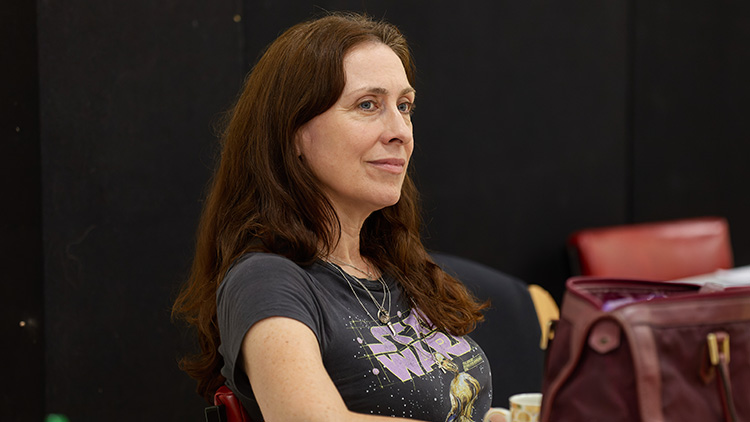AN INTERVIEW WITH STELLA FEEHILY
Posted on 28 August 2024.
Posted in: Interviews with cast and creatives

We caught up with writer Stella Feehily to talk about her inspirations behind writing about renowned astronomer Cecilia Payne-Gaposchkin for The Lightest Element, which runs on the Main Stage from 5 September to 12 October.
Can you tell us in a nutshell what The Lightest Element is about?
In a nutshell, The Lightest Element is about the most famous British astrophysicist you’ve probably never heard of. Her name is Cecilia Payne-Gaposchkin, born in 1900, and she studied at Cambridge in 1919, and then at Harvard in the 1920s which is where she discovered what stars are made of in her groundbreaking PhD thesis. Her findings were dismissed by her professor, Henry Norris Russell, who later came to the same conclusions as Cecilia. He was subsequently credited for being the first to discover what the star universe is made of.
Where does The Lightest Element begin, and why did you choose to start it from that point?
The play starts in 1977, when Cecilia is aged 77 – an ironic point in her life because she was the first woman to win the Henry Norris Russell Lectureship Prize, and it was he who came to the same conclusions as her, which he initially dismissed, back in 1929. It’s a pivotal moment in her life – and another point of vindication in the play which is what the story is all about.
What inspired you to write about Cecilia?
I saw a programme called Cosmos: A Spacetime Odyssey presented by Neil DeGrasse Tyson, and in episode 8 of the show he talks about the women researchers, called ‘computers’, at the Harvard Observatory, and the brilliant Cecilia comes over from England and makes this amazing discovery. I couldn’t understand why I had never heard of this incredible woman! Her work was just as revolutionary as Copernicus discovering that the Earth revolves around the Sun.
What do you think is unique about your play?
Its uniqueness comes from its collision between Science, McCarthyism, political tension at Harvard at the time and the societal expectations of and discrimination against women. My aim was for all of these elements to coalesce into a perfect storm where we meet our characters.
Why do you think Cecilia’s story is relevant today?
I think because we desperately need role models. There’s a long way to go with women in science- particularly in astronomy and astrophysics. When you look at where women are in these roles even today, there are still certain points where they aren’t getting a seat at the table. Women have made great strides in science across history, but there’s still a long way to go. We need to encourage women to keep moving forward in the sciences! This is a story about someone who has the courage of their convictions, and we need to see more stories of women like Cecilia who have such incredible resilience.
What do you want audiences to take away from The Lightest Element?
First of all I want them to be entertained, but I also want them to learn about Cecilia’s story and be excited that we had such a revolutionary British thinker, and to be proud of her. All in all I hope that audience members will be intrigued, moved, and inspired.
BOOK THE LIGHTEST ELEMENT HERE
